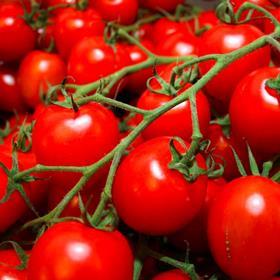
Spanish vegetable exports during the first quarter of 2009 fell by 4 per cent to some 2.8m tonnes, compared with the same period a year before, in a trend which the country’s fresh produce sector has blamed on Moroccan imports to Europe.
The drop in exports principally affected tomatoes, which decreased by 16 per cent in terms of volume to 389,586 tonnes and 7 per cent by value to €364m compared with 2007.
According to Spanish fresh produce federation Fepex, the country’s total vegetable exports dropped by 12 per cent to a total of 1.3m tonnes during the quarter, while the value of exports increased by 5 per cent to over €1.3m.
The fall in exports was seen across the category, including products such as green beans, peppers, aubergines and courgettes, as well as tomatoes.
Fresh vegetable imports to the country during the period rose by 15 per cent in volume and 14 per cent in value, totalling 427,722 tonnes and €172m respectively.
In a statement, Fepex called on Spain’s ministry of agriculture to improve the competitiveness of the country’s fresh produce industry.
But the federation also claimed that vegetable imports for Morocco to Europe were responsible for the fall in Spanish exports, accusing the European Commission of being responsible for failing to enforce import taxes for Moroccan products.
There was better news, however for Spain’s fruit producers, whose exports increased by 4 per cent to reach 1.4m tonnes during the quarter, although they decreased in value terms by 4 per cent to €1.1m.
Citrus exports from Spain also grew by 9.5 per cent in volume to 633,020 tonnes and by 6 per cent in terms of value to €384m, while mandarin volumes also rose slightly by 0.6 per cent to 478,536 tonnes, although fell in value by 4 per cent to €215m.
At the same time, overall fruit imports to Spain dropped by 9 per cent to 256,194 tonnes and by 1.5 per cent in value to €215m.



